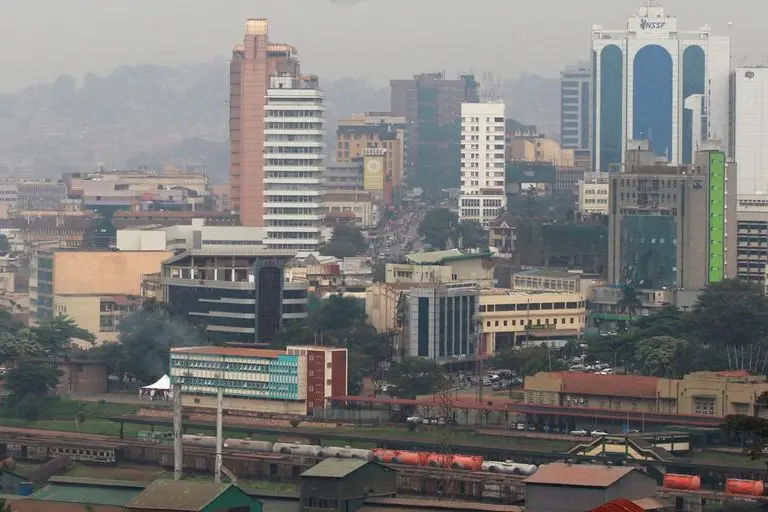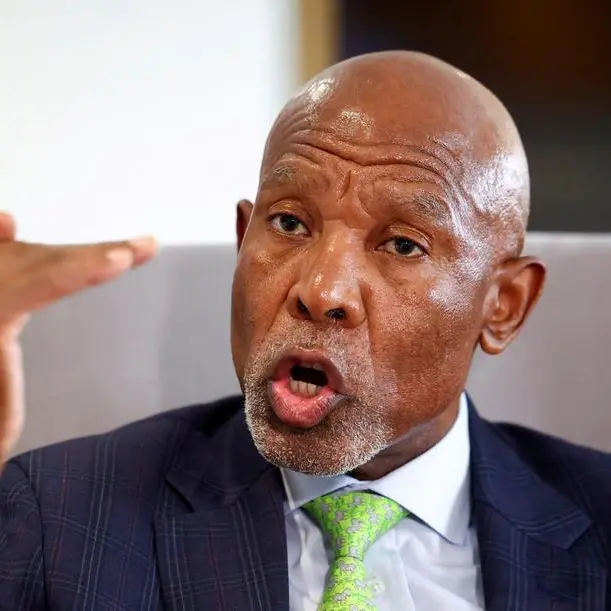PHOTO
Fear of a blown-out war in Juba saw Uganda deploy its military there with an eye on keeping the peace while securing investments made by Kampala.
Interviews with regional security officials familiar with the matter say Uganda sensed, ahead of the region, as early as February, that South Sudan was heading to another war, which could damage its main market in the East African region.
And when Kampala first confirmed the troops would deploy on March 14, the official reasoning was that it was going to protect the administration of President Salva Kiir.
Muhoozi Kainerugaba, the Ugandan Chief of Defence Forces, explained that the Uganda People’s Defence Force (UPDF) will “protect the entire territory of South Sudan like it was their own.”But he also said Uganda only recognises one leader in South Sudan—President Salva Kiir—and that any opposition to him is a “declaration of war” against Uganda.
Read: Uganda says special forces deploy in Juba amid tensionsThis subtle messaging turned out to also indicate Uganda’s fears that Riek Machar — the first Vice-President and the leader of the Sudan People’s Liberation Movement-in-Opposition (SPLM-IO) was planning to undercut President Kiir, whose removal could plunge South Sudan into uncertainty.“Uganda cannot take chances,” explained a security official familiar with the plan.“There is a whole economy at risk but more importantly, the refugee problem is a burden we would want to minimise,” the official added, speaking on condition of anonymity so as not to compromise official stance.
In Juba, Uganda’s fingerprints have been all over its key security apparatus. The UPDF-trained Tiger Guards, the official brigade protecting President Kiir, the Ugandan official explained.
Uganda had also helped tutor some of the people seen as possible successors to President Kiir, including the new vice-President Bol Mel - who replaced James Wanni Igga, whom Kiir fired unceremoniously recently.
Uganda has also kept a tight finger on the pulse of the Jieng Council of Elders, a loose grouping of Dinka leaders that helped manage the flow of power in Juba.“If Uganda allowed the administration in South Sudan to collapse, these networks could break. It could open up the country to wolves,” the official added, using a metaphor to demonstrate possible eclipsing of Uganda’s contribution to the stability of South Sudan.
Uganda has its business reasons. South Sudan emerged as Uganda’s top export destination, overtaking Kenya, according to the latest January 2025 data from the Bank of Uganda. The escalation of violence threatens trade between the three neighbours.
It explains why Kenya has also been involved in the South Sudan issue: On Friday, President William Ruto deployed former Prime Minister Raila Odinga to Juba, to meet with President Kiir and Dr Machar, who has since been placed under house arrest with his wife Angelina Teny.
Dr Ruto said he had consulted Ugandan President Yoweri Museveni and Ethiopian Prime Minister Abiy Ahmed before deploying Mr Odinga.
The three countries are guarantors to a 2018 peace agreement that created a coalition government between Kiir, Machar and several other armed groups.
But they haven’t always agreed on the future of South Sudan. Kenya has sought to include all other armed groups in government but Uganda has always wanted to limit the role of Machar, and elevate Kiir’s powers, a government official in Nairobi explained.“Kenya had somehow been eclipsed, even though it helped South Sudan’s mediation and eventual secession,” the Kenyan diplomat said, referring to the Comprehensive Peace Agreement, negotiated in Kenya between the Sudanese government and then southern Sudan rebels under the late John Garang.
Read: Uganda’s major dilemma on rebel battle in CongoThey have all built strong economic ties to Juba though. Uganda's exports to South Sudan surged to $55.9 million, representing a 54 percent increase from the previous month, surpassing Kenya as Uganda's top export market, while Kenya saw a slight decline in exports from Uganda.
Last year, Kenya exported $227 million to South Sudan. The main products that Kenya exported to South Sudan were other edible preparations, beer, cement, among other products.
On the other hand, South Sudan exported $123,000 to Kenya during the same period. The main products that South Sudan exported to Kenya were rough wood ($38200), medical instruments ($26,200) and electrical transformers ($15,900).
Over the past five years, the exports of South Sudan to Kenya have decreased at an annualised rate of 2.64 percent. And this is set to decrease further following the looming civil war.
But violence in South Sudan has been simmering for months, alarming Uganda first. In early March, clashes erupted between the South Sudan People’s Defence Forces (SSPDF) and the White Army, a militia predominantly composed of Nuer youth loyal to Dr Machar.
Tension spiked when the government moved to replace long-serving troops with newly deployed forces. Fearing targeted attacks or forced disarmament, local armed groups resisted, demanding a unified national force.
Soon after, the SPLM-IO raised alarm over heavy South Sudanese forces’ deployments near Machar’s residence, foreshadowing the deteriorating security situation. Tension escalated further when the White Army seized Nasir, a strategic town near Ethiopian border.
The violence took a tragic turn when a UN helicopter, dispatched for an evacuation mission in Nasir, came under attack. A crew member was killed, and two others were critically injured.
In a retaliatory move, SSPDF Commander Gen Majur Dak was captured and later executed by the White Army, further inflaming the conflict.
The fallout from the Nasir attack has been swift. SPLM-IO accused the South Sudan National Security Service (NSS) of unlawfully detaining the National Minister of Peace-Building, Stephen Par Kuol, and three of his staff members. Kuol was later released, but Petroleum Minister Puot Kang and SSPDF Deputy Chief of Staff Gen Duom Lap remain in custody.
Tensions were further aggravated when President Kiir dismissed SPLM-IO and South Sudan Opposition Alliance (SSOA)-affiliated governors in Upper Nile and Jonglei States without consulting his peace partners.
His decision to replace them with Lt-Gen James Koang in Upper Nile and Dr Riek Gai Kok in Jonglei has sparked backlash from opposition leaders, who view it as a violation of the power-sharing agreement. Then on Tuesday, Dr Machar and his wife were placed under house arrest.
According to Machar's Press Secretary Puok Both Baluang and Deputy Party Leader Oyet Nathaniel Pierino, a convoy of 20 heavily armed police vehicles forced their way into Machar's residence led by the defence minister and chief of national security.
Read: Why Uganda is deploying troops to JubaA move which the SPLM-IO says is a violation of the 2018 Revitalised Agreement on the Resolution of the Conflict in South Sudan, the official name of the peace agreement. Both the regional and international community has taken notice of South Sudan’s deteriorating situation.
The civil war in Sudan has severely disrupted oil exports, depriving South Sudanese coffers of petrodollars, the government’s main source of revenue.
The threat of possible attacks, plus the high cost of transport and struggling economy, has hindered trade of goods and services from her neighbours Kenya, Uganda, Sudan, among other African countries.
Civil strife“For the record, East Africa countries did economically well in the last two years, 2023 and 2024. But the economic indicators for this year paint a different picture. The war in DRC and also South Sudan is on and off because of the political turmoil facing the country right now, we can’t project the growth,” said John Lual Akol Akol, chairperson of the East African Business Council, the private umbrella body in the East African Community (EAC).“Both DRC and South Sudan are major countries that are importing goods from Uganda, Kenya, and Tanzania. If they are not stable, they will affect the economic growth within East Africa.”The civil strife in South Sudan has severely disrupted oil exports, depriving South Sudanese coffers of petrodollars, the government’s main source of revenue.
The threat of possible attacks, plus the high cost of transport and struggling economy, has hindered trade of goods and services from her neighbours Kenya, Uganda, Sudan, among other African countries.“South Sudan is not stable in terms of business and also the political situation is complex. The investors fear the escalation of war in Juba. We still have hope that the government of South Sudan will pursue peace,” said Akol.
The violence, instability, recurring displacement — food stores are running out and many markets are empty.
Truck drivers who transport goods to Juba now fear for their lives as the rebels pose a security risk on the transport route from Kenya through Uganda to South Sudan.
Read: South Sudan Machar’s party pulls out of peace process“Trucks from Mombasa transport goods including grains, wheat, cooking oil, electronics and fuel from the Eldoret depot. However, frequent roadblocks and artificial jams along the Eldoret-Bungoma-Malaba route have impacted negatively on the movement of goods to South Sudan,” said David Masinde, chairman Kenya Long Distance Truck Drivers and the President of Africa Long Distance Truck Drivers.“But now the situation in Juba has worsened transportation of goods along the Malaba-Kampala-Juba route. Before the situation got worse, the army could escort us to Juba but now it is not clear whose army is in charge. Frequent ambushes by rebel’s enroute to Juba have increased following tension in South Sudan cutting off trade within the region.”The United Nations has warned that the country is on the brink of renewed civil war, and Germany has temporarily closed its embassy in Juba due to escalating security risks. The US embassy and other diplomatic missions have reduced their presence to a minimum.
The UN Mission in South Sudan (UNMISS) has called on all parties to exercise restraint and uphold the peace agreement as violence escalates.
Speaking on Thursday in New York, UN Spokesperson Stéphane Dujarric said that Secretary-General António Guterres was following “the alarming situation” with deep concern.“We warn that this action takes the country yet one step closer to the edge of a collapse into civil war and the dismantling of the peace agreement,” said Dijarric.
© Copyright 2022 Nation Media Group. All Rights Reserved. Provided by SyndiGate Media Inc. (Syndigate.info).





















